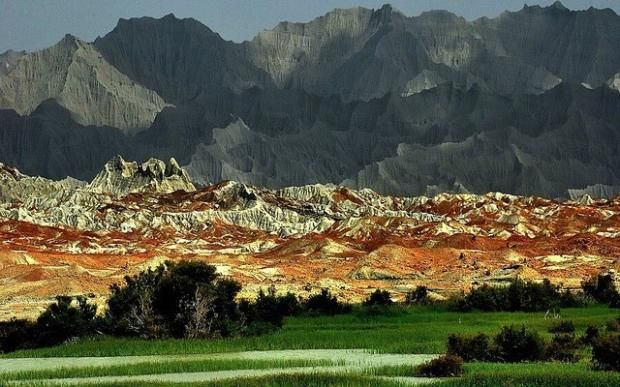
Balochistan, Pakistan’s largest province, is rich in natural resources and cultural diversity. Yet, it finds itself ensnared in a cycle of violence and unrest that has persisted for decades. The resurgence of militancy in this province poses profound threats not only to its residents but also to the stability of Pakistan and the broader South Asian region. Understanding the roots of this militancy, its implications, and the urgent need for comprehensive strategies to address this crisis is crucial.
The historical roots of militancy in Balochistan are complex, intertwined with grievances that stretch back to the late 1970s. Following the Soviet invasion of Afghanistan, the United States began a campaign to fund and arm the Mujahideen, which inadvertently led to a proliferation of weapons spilling over into Pakistan. This laid the groundwork for various militant groups, including those operating in Balochistan. The legacy of this historical tumult continues to shape the landscape today, as deep-seated frustrations fester.
Recent trends indicate a worrying escalation in militant activities. For instance, on August 25-26, a series of coordinated attacks claimed the lives of over 70 people, including 23 civilians, and left key infrastructure in ruins. The Baloch Liberation Army (BLA) proudly claimed responsibility, framing their actions as part of a long-standing struggle against what they see as the Pakistani government’s unjust appropriation of Balochistan’s vast gas and mineral wealth. Insurgent attacks have surged, with 62 incidents reported in just the first quarter of this year alone, primarily targeting security forces, Chinese interests, and nationalist figures within the federation. The Makran region—home to districts like Kech, Gwadar, Panjgur, and Kharan—has borne the brunt of this violence.
The BLA’s Majeed Brigade has emerged as a formidable force, particularly in targeting China-Pakistan Economic Corridor (CPEC) projects. Recent assaults in Mach and Gwadar reflect a troubling boldness that threatens not only local stability but also broader economic ambitions. As these groups become more emboldened, pro-constitution nationalist parties find themselves increasingly on the defensive, struggling to maintain their relevance and support among a disillusioned populace.
Despite the province’s wealth in resources, Balochistan remains one of the poorest regions in Pakistan. An estimated 70% of its residents live in multidimensional poverty, relying on subsistence farming and animal herding, with limited access to education, healthcare, and job opportunities. This economic neglect breeds resentment, causing many to see militancy as a viable avenue for asserting their rights. Additionally, skepticism surrounding development initiatives like CPEC—often perceived as favoring outsiders—combined with ongoing conflicts over fishing rights, further fuels unrest.
The political landscape in Balochistan adds another layer of complexity. Frequent leadership changes and a lack of consistent policy direction leave many citizens feeling neglected and disenfranchised. Pro-constitution nationalist parties, such as the National Party and the Balochistan National Party, have seen their support dwindle, particularly following violent crackdowns on Baloch youth. This environment of frustration and demand for accountability complicates the political scene and plays into the hands of militant groups.
The insurgency has evolved significantly over the years, marked by pivotal incidents that galvanized recruitment and escalated violence. The BLA has shifted its focus and leadership toward the Makran region, intensifying operations against security forces and Chinese investments. This evolution risks pushing the insurgency into a more politically organized movement, demanding a different response from the state.
Current security responses in Balochistan largely rely on military interventions. While necessary, these operations often lack a complementary political and socio-economic strategy. Historical initiatives, such as Aghaz-i-Huqooq-i-Balochistan in 2008 and Pur-Aman Balochistan in 2015, aimed to address local grievances but have often been overshadowed by a ‘securitization’ approach focused primarily on military solutions. This has led to a situation where dialogue and reconciliation are deprioritized, leaving many issues unresolved.
Today, the strategy appears to favor a hardline approach, eschewing dialogue with nationalist parties and disengaging from movements advocating for the rights of missing persons. This shift threatens to deepen the conflict rather than resolve it. If the insurgency continues to evolve at this pace, it may soon take on a political face, compelling the state to craft a new strategy of engagement and reconciliation that it has long neglected.
The rising threats from militancy in Balochistan are a complex interplay of historical grievances, socio-economic neglect, and political instability. The recent wave of violence, particularly the BLA attacks that have led to significant casualties, underscores the urgency of the situation. Addressing these multifaceted issues requires immediate attention from both provincial and federal governments. A concerted effort to engage with local communities, promote socio-economic development, and implement inclusive governance is essential to break the cycle of violence.
Balochistan’s stability is crucial not just for Pakistan, but for the entire region. The international community must also recognize this pressing issue, offering support for initiatives that prioritize peace, development, and dialogue. As the situation continues to evolve, it is imperative that all stakeholders acknowledge the urgency of the moment and collaborate to forge a path toward lasting peace and stability in Balochistan. The time for action is now, before further violence and despair take root in this rich yet troubled province.



















Leave a Reply